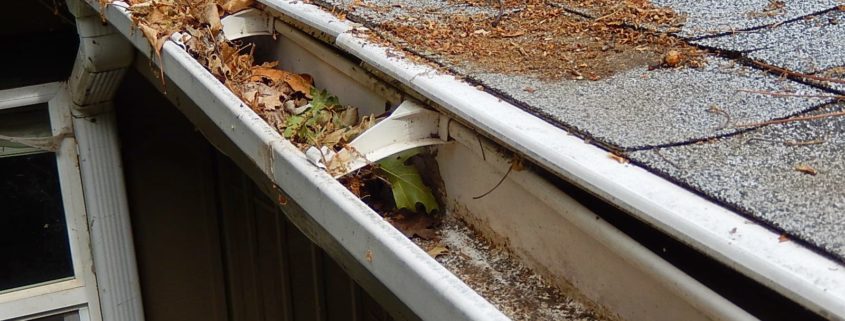Are Your Gutters Prepared for the Rainy Season?
One of our clients has huge, two inch deep rivets in the siding on her house. A couple of years ago we replaced the gutters around her front porch. They were bent, cracked and leaking everywhere. But the damage had already been done to the wood where the gutter touched the side of her house. Now a woodpecker has left his mark, shredding the pliable, damaged wood to find his next meal.
Poor Gutters Cause Damage
To protect your home from damage, functional gutters are a must. Just as important as a roof and siding, gutters fend off water damage. Without them directing the flow of water, it would pour directly over eves, eroding the soil around the foundation of your home. And even if you have gutters, they may not be functioning optimally. Bad gutters can cause just as much damage, including:
- Leaks that damage and weaken siding
- Water collecting around the foundation of the home, which can cause flooding and even foundation damage
- Backed-up gutters can cause roof damage from excessive debris, ice dams in colder temperatures and water pooling under shingles
- Mold growth anywhere the water is pooling and not directed away from the home properly
- Damage to landscaping from gutter overflow
If you need to install new gutters, HA Construction can certainly help you with that. We recommend that all eves and overhangs have gutters directing water flow to an appropriate run-off location in your yard (i.e. downhill, away from the home).
Keep Those Gutters Clean
Once new gutters are in place, then maintenance is key. First, we recommend gutter guards of some kind, whether that’s the full-throttle gutter system with covers, or mesh wiring to keep most large debris out of the gutter (such as leaves and sticks).
Even with guards in place, you’re going to need to clean the gutters. They will likely need to be cleaned at least once in the fall. Even if you don’t have large trees, wind blows leaves everywhere. And if you do have large trees that require raking your yard multiply times throughout the season, then you should add gutter cleaning to your yard work regimen each fall.
It’s also a good idea to clean the gutters after the final thaw in early spring. This will give you the opportunity to check the gutters for damage from ice and snow (snow is actually quite heavy and, in large accumulations or a long winter, can create bends, breaks and leaks).
Really, at the end of each season is an ideal time to at least check the gutters for debris and damage, otherwise you may find yourself replacing them again long before you should be. As with any aspect of your home, diligence is key to keeping everything functioning as it should and preventing damage.






